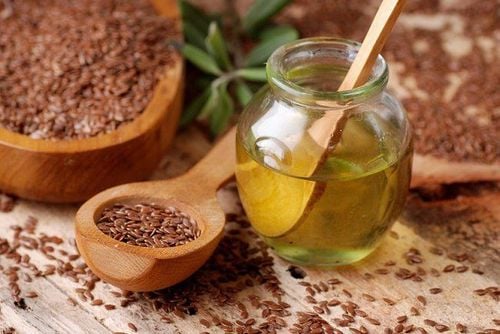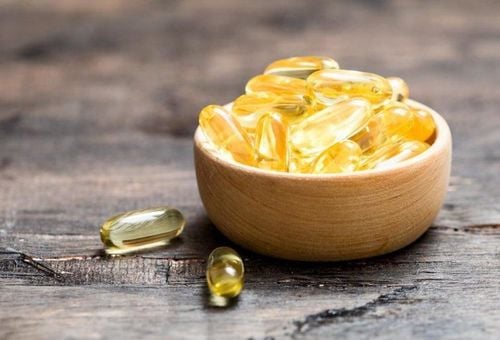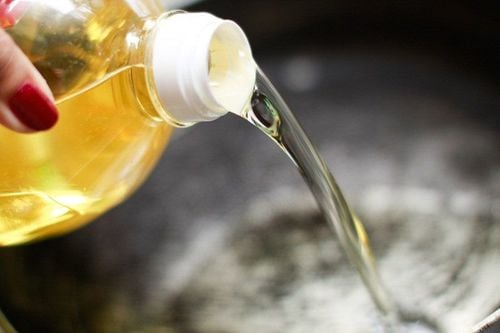This is an automatically translated article.
Flaxseed is a plant-based food that provides healthy fats, antioxidants, and fiber. Some people call it “functional food”, meaning that one can eat it to promote health.
1. What is flaxseed?
Flaxseed is the seed of the flax plant. Seeds are small, brown or yellow. Every part of the flax plant has its uses. Linen yarn is used to make linen and ropes. Flaxseed is also used to make flax oil.
Today, flaxseeds are commonly available in the form of seeds, oils, powders, tablets, capsules, and flours. People use it as a dietary supplement to prevent constipation, diabetes, high cholesterol, heart disease, cancer, and several others. The nutrients found in flaxseed include: Lignans, antioxidants, fiber, protein and polyunsaturated fatty acids like alpha-linolenic acid (ALA) or omega-3 fatty acids.
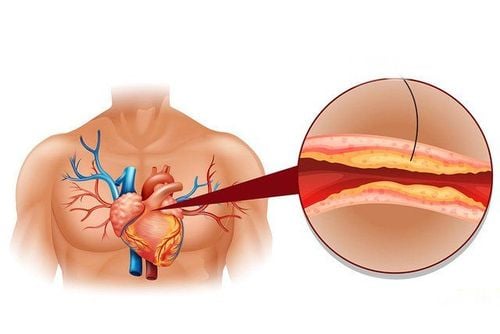
Hạt lanh có tác dụng ngăn ngừa cholesterol cao, bệnh tim mạch, ung thư và một số bệnh khác.
2. Nutritional composition in flaxseed
Flaxseed and flaxseed oil are recommended because of their low carb properties and high amount of essential fatty acids.In two tablespoons of ground flaxseed, in addition to providing fiber, it also contains a number of other nutrients including:
3.6g omega fats - 3 75 calories 2.6 grams protein 4 grams carbohydrates 6 grams fat. 4g fiber (16% DV) 100 milligrams (mg) phosphorus 60 mg magnesium (14.28% DV) 120 mg potassium (2.55% DV)
3. What are the benefits of flaxseed?
“What are the benefits of flaxseeds?” . Flaxseeds and flaxseed oil are packed with protein and according to U.S. Department of Agriculture guidelines, flaxseeds provide the following health benefits:Digestion: Flaxseed can help with digestive issues such as: constipation, thanks to its high fiber content. Lowering cholesterol levels helps prevent other health problems like heart disease and stroke. Omega-3 essential fatty acids, known as “good” fats, have been shown to have heart-healthy effects. Research has shown that flaxseeds can reduce the risk of cardiovascular disease. In addition, essential fatty acids keep skin, nails and hair shiny and healthy. Control certain cancers: Flaxseeds contain cancer-fighting compounds called lignans and polyphenols that may help control certain types of cancer, including breast cancer. Lignans, which have both phytoestrogens and antioxidants, promote hormonal balance. Flaxseed is the highest source of lignans in the plant world; it contains 75 to 800 times more lignans than other plant foods. Reducing hot flashes in menopausal women: Several recent studies are aiming to support the hypothesis that flaxseed can reduce the severity of hot flashes that occur in women during menopause. Menopause. However, the scientific evidence to support this point is still unclear. Weight control: This suggested benefit is primarily derived from the fiber of flaxseeds, which can help us feel fuller for longer. In addition, flaxseeds also contain choline, which contributes to brain health and function.
4. Store, store and process flaxseeds properly
4.1. Storing and storing flaxseeds Since flaxseeds, flaxseed meal, and flaxseed oil are all sensitive to light and can degrade with prolonged exposure to light, make sure they are packaged in the correct packaging. opaque, non-transparent, and read the "use by" date on the label carefully.Whole flaxseeds can be kept at room temperature for up to a year, but once they've been ground, flaxseed meal should be used as soon as possible. Flaxseed oil can also go rancid if not used effectively. Try to buy small amounts of oil and flour in advance, and use what you grind for a short period of time.
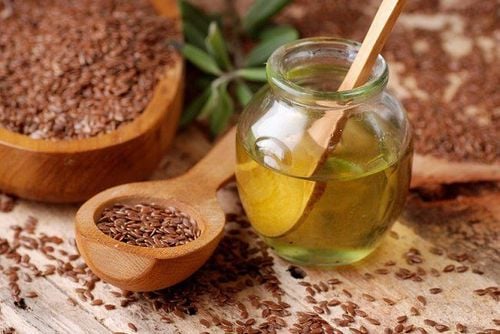
Hạt lanh ở dạng bột hoặc dầu đều có thể bị biến chất nếu tiếp xúc lâu với ánh sáng
4.2 Flaxseed Recipes Ideas Smoothies: To kickstart the morning, add a teaspoon or two of ground flaxseed meal to a smoothie or shake. Baking: Ideal for cookies, muffins, pancakes and quick breads: If you love baking, you can add coarsely ground flaxseed to any of these for texture and nutrition. Salad: Drizzle some flaxseed oil over roasted vegetables or add chopped seeds for a final topping. If you prefer, switch to olive oil and make vinegar from flaxseed oil. Snacks: Flaxseed oil can be sprinkled on popcorn or flour or can be mixed with herbs and spices and used to make your own crackers or baked chips. Oatmeal: With flaxseed meal, oats have become a lot smarter. Shake up overcooked oatmeal or pudding made with soaked chia seeds with a little cinnamon and brown sugar. Granola and breakfast bars: If you're making your own energy bars or granola, add ground flaxseed meal to the recipe. “What are the benefits of flaxseeds?” . Flaxseed has so many uses, long before becoming a "superfood" as we know it today, flax was used mainly to create textiles. Of course, today, beyond its use in the apparel industry, it's considered a staple in the nutrition world and is known for being an excellent source of fiber and healthy omega-3 fatty acids. In addition to other great health benefits, it would be remiss if we do not include flaxseeds in our daily diet.
Please dial HOTLINE for more information or register for an appointment HERE. Download MyVinmec app to make appointments faster and to manage your bookings easily.





